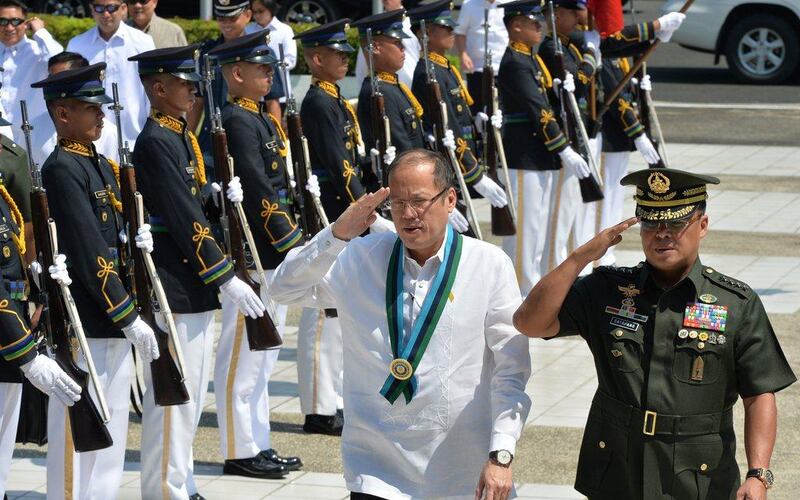MANILA // Philippine President Benigno Aquino has said he may try to change the constitution and serve a second term in office, a stunning announcement in a nation haunted by dictatorship.
The Philippines’ constitution restricts presidents to serving a single term of six years, an arrangement designed to stop a repeat of dictator Ferdinand Marcos’s two-decade reign that ended in a 1986 “people power” uprising.
For many years Aquino insisted he was against constitutional change and that he would step aside when his term ended in 2016 but, in a television interview aired on Wednesday night, he indicated he was reconsidering.
“When I first got into this, I noted I had only one term of six years. Now, after having said that, of course I have to listen to the voice of my bosses,” he said on the ABC-5 network.
Aquino, 54, frequently calls Filipinos his “bosses”.
Aquino said he was considering the highly controversial move because he wants to ensure his political reforms do not end with the conclusion of his first term in office.
Nevertheless, Aquino emphasised that he had made no definite plans.
“It doesn’t automatically mean I will go after an additional term,” he said.
Aquino would have to go through a long and complicated process to change the constitution, with any of three potential methods having to be approved by a referendum requiring simple majority support.
The son of democracy champions Benigno and Corazon, Aquino enjoyed a landslide election victory in 2010 on a promise to stamp out widespread corruption blamed for massive poverty.
He has won international plaudits for his good governance programme and has been widely applauded for bringing consistently strong economic growth to the country.
But the high popularity ratings he enjoyed for the first half of his term have begun to slide sharply amid a slew of corruption and political controversies.
Criticism that the poor have missed out on the country’s economic gains, magnified by a recent spike in inflation, has also hurt Aquino.
Ironically, the current constitution was enacted in 1987 under his mother Corazon, who led the revolution against Marcos and then served a single term as president before enthusiastically standing aside.
Aquino did not specify that he wanted to change the constitution just to remove presidential term limits.
Instead, he said the constitution likely needed to be amended to limit the powers of the Supreme Court, which recently ruled that Aquino’s main budget stimulus programmes was illegal.
“Before all these things happened, I was closed to (constitutional change). I admit that. But now, I’m seriously rethinking things,” Aquino said, in reference to the court’s budget ruling.
He complained that the US-style checks and balances in government had faded and the Supreme Court now had the power to overrule Congress and the executive branch.
* Agence France-Presse





